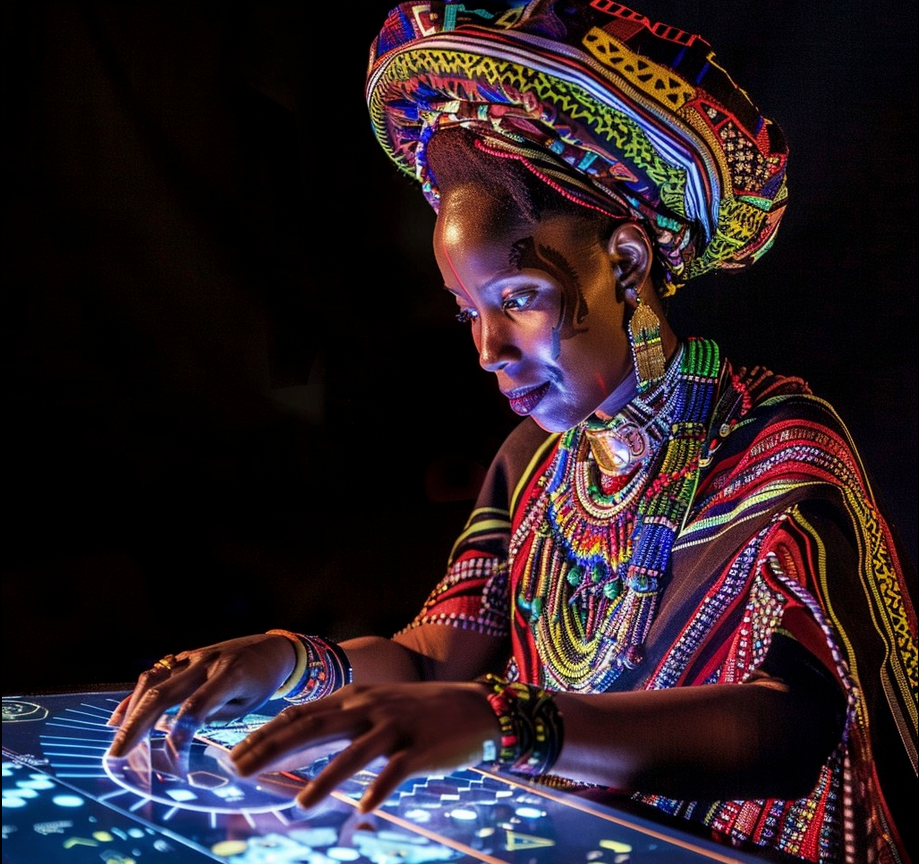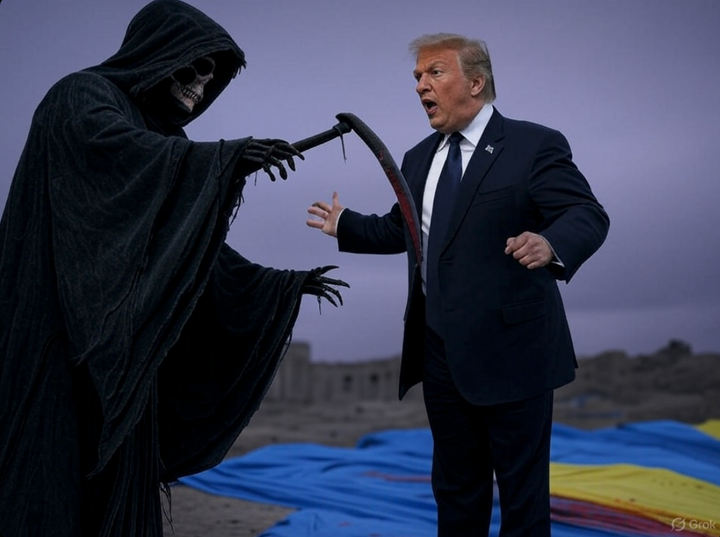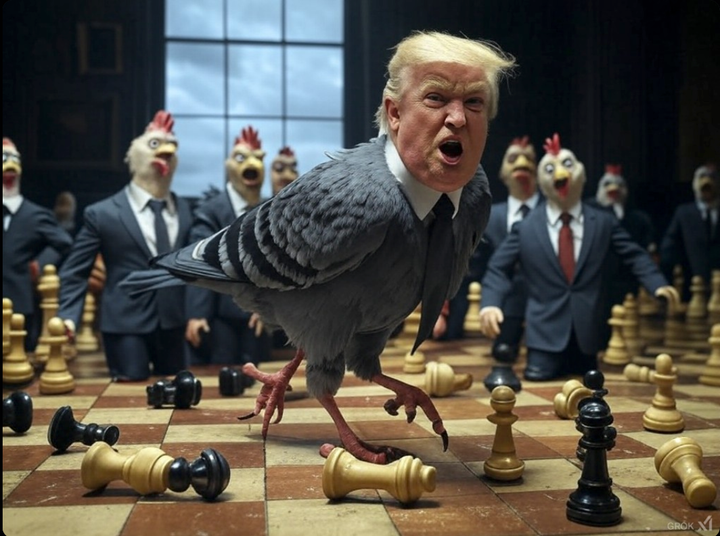African Breakout
Many African nations have become fairly wealthy by per capita GDP. But they have trouble using this wealth to further develop their economies and increase the well being of their citizens.

The dark continent is coming into its own
It is time to write something about Africa again. Things are happening rapidly there now, just like in the rest of the world. As with the world in general, it comes down to driving out western hegemony, and establishing institutions and structures which serve the people.
I last wrote about Africa a year and a half ago. At that time, there had just been a coup in Niger. A military officer had just thrown out a toadie of the French government, and had begun to govern in his nation’s interest.
That is the opposite of the traditional practice. In that, a military coup throws out a popular leader who tried to run things for the people. Post colonial control is reestablished.
The French are especially bad for this. Other former colonists take a lighter approach. But the basic plan is always the same, and directed by the World Bank.
A comprador class is kept in place, to keep watch on the population and run basic government systems. The country is kept in serious debt, intended never to be repaid. Often governments are forced into taking on debt, even when they did not ask for it, or need it.
Of course this violates principles in all legal systems, about using debt to entrap people. Of course, the functioning of legal systems depend on who is running the system. Courts are rarely independent, especially international ones.
A proper court will ask a creditor why he made a loan which obviously cannot be repaid. Also, why he will not practice some ‘forbearance’ when the debt is obviously ruining the debtor. In common law systems, such loans are called ‘fraudulent conveyances’ and in civil law systems, ‘odious debt’.
But for African states there has been no appeal against odious debt. To further insure this system stays in place, there is the comprador class, and then the country’s army, usually recruited and trained by the colonial power. If that fails, civil disorder can be fomented by various non governmental organizations; USAID being the most prominent.
In recent years African countries have had some remedies for this situation. Russia and China have risen as challengers to the western hegemony. Russia can provide some military advice and training, and sometimes more direct support.
China has the golden purse strings. It is building new infrastructure all over Africa. As one African leader said; “when the World Bank comes, you get a lecture. When the Chinese come, you get a power plant.”
In recent decades, this has led to an economic boom in parts of Africa. Ports, transport corridors, power plants, power lines, are getting built where the countries need them. They are not restricted to where they best facilitate export of resources to the west.
The old comprador class has begun to be pushed aside in many places. The word comprador originates in colonial times. The word means ‘supplier’ or ‘provider’ in Portuguese.
In every colony, in Africa and elsewhere, such a class arose. They were natives of the area, who became wealthy by supplying the colonists with what they wanted. They ran local government and policed the population for the colonists.
After direct colonization ended the European rickshaw riders went home. Under the new system, the compradors took full control of government and continued their role of suppressing their countrymen for the benefit of global capital. They ran outrageous systems of graft, skimming off these countries wealth and depositing it in western banks, bonds, and stocks.
A new, useful entrepreneur class has been developing in Africa. They have some financial and technical backing from the Chinese. They have been especially good at building telecommunications which do not rely on hard wires.
It is instructive that western countries are incapable of building these kinds of networks. They insure that people’s ‘data’, meaning private information, stays in the country. Locally based social media, for discussing things in a local perspective, becomes possible.
African governments have become much more able to talk back to international bankers. They are more able to simply refuse to pay and to demand better terms. They can get much better terms for needed development loans from Chinese banks.
The old enforcement mechanisms are less available for the global financialists. Army officers often have more loyalty to their countries, and are less interest in being mere ‘leg breakers’ for international loan sharking. Coups often meet with great resistance and are unsuccessful.
The next level of enforcement is to start guerrilla insurgencies. Most African countries are unable to afford much military effort, so they must rely on troops from their former colonizers to contain the terrorists. Or, a United Nations force is sent in, always controlled by Western generals.
These military or ‘peace keeping’ interventions never do much to end the violence. They manage the conflict, so that pressure on the national government is maintained. Also, often, so that theft of resources can continue in protected zones.
Availability of Russian military assistance is providing at least a partial remedy for this. There are limits to what the Russians can do. However, Russia is the next most popular country in Africa, after China.
These developments enrage the western powers. After about 2017, vicious means were employed to halt economic development in non complying African states. Their exports were boycotted, technical support withheld, and outright industrial sabotage often resorted to.
However, many African countries are working around this. The continent is recovering from the economic disruptions of recent years. The dark continent continues to slowly break out of its box.
Africa has been lost for a long time. It was one of the two great refugia from which modern humans developed. With the development of the neolithic agricultural age, it was isolated and fell behind the rest of the world.
This does not mean that nothing happened there for ten thousand years years. New developments arrived there later than elsewhere. Thus it was vulnerable during the age of European colonization.
The slave trade and mercantilist imperialism retarded development. Only in the late nineteenth century did the European empires move in and take direct control. This period did not last long.
African civilization was better developed and more resilient than these colonizers expected. They were blinded by racist ideas. They learned that it would be impossible for them to displace the existing population as they had in the Americas.
The final stage of colonialism is now breaking down as the old globalist system breaks down. Africa is starting to come into its own. It has been the lost, dark continent. It is the last continent which is mainly rural.
The colonizers did everything to prevent any technical education in Africa. The continent is now working to correct this. Russia and China are a big help.
African people are as capable of technological advancement as people anywhere. Lower IQ scores in Africa are an epigenetic feature. This will change rapidly as these countries become urban and industrial.
Africa is now the last part of the earth which imperialists have any hope of retaining as a source of cheap labor and resources. So, a big fight is developing for it. The Eurasian bloc wants to gain full access into Africa.
The Chinese are not so stupid as to think they can replace the Europeans as big daddies. They understand that industrializing Africa benefits them much more than does just extracting resources. They want the whole world to develop because that most benefits their own working classes.
Russia finds in Africa a perfect market for its agricultural exports. More importantly, for it’s nitrate fertilizers. As well, the less money the Atlanticists take out of Africa, the less they have with which to attack Russia and its allies.
Thus, Africa is a front in the many sided struggle between competing economic visions of the world. Africa had been the preserve of the European colonizers. The Europeans are now failing.
Now the newly emerged American expansionist regime talks like it wants a piece of Africa. It sees Europe receding from Africa as a vacuum to be filled. Their mentality is that they have to get it before the Chinese and other Eurasians do.
The last time I wrote about Africa, I focused on the revolt of the former French conies in the North West of Africa. This is where the fight against imperialism has been most successful. The success is continuing, with Russian help.
The immediate cause of conflict was the very aggressive French response to Niger’s assertion of its independence. However, France and the rest of Europe really cannot do much about it. Because everything in the Atlantic countries is now sucked dry to feed a bloated rentier class, they can no longer assemble effective military forces.
Likewise, they have nothing the Africans need which they cannot get, better and cheaper, from China. Yet Europe is very dependent on raw resources from its ‘former’ colonies in Africa. Also, on the money it still extorts from these countries.
France seems especially dependent on this kind of relationship with its neocolonies. France has gone all in with nuclear power to generate electricity. Niger is one of the largest Uranium producers in the world.
France has been able to name its price for all the uranium Niger produces, the gold, the phosphate, and now the oil which has been recently discovered. Niger, and most of the other French neocolonies in west Africa, have also been delighted to let France issue a common currency for them. It graciously allows them to keep all their reserves in the French treasury.
To further secure its control over these nations, France created an organization called ECOWAS. It is an acronym for something in French. It pretended to be a military and economic alliance among the 14 former French colonies of the west of Africa.
The present situation in Niger had been developing for some time. The trigger was the 2023 coup which overthrew the Bazoum government. Western media harps on the fact that Bazoum came into office through an election.
The usual Western way of thinking is to see military coups as always bad. They usually are, in places like Latin America. Often coups have been used in this way in Africa, to remove governments interfering with local corruption or neocolonial extraction.
Yet often in Africa, an army coup has been totally necessary. Corruption had led to total breakdown in a country and the army was the only stable institution left.
The Nigerien military junta has the full support of the population. Its commanders are so far doing what they said they would do. The army is swamped with volunteers to defend the country and drive out occupiers and foreign funded jihadi insurgencies.
Niger found allies everywhere. Several other Francafrique countries had already thrown out governments of western agents. They promised to treat any attack on Niger as an attack on themselves.
Nonetheless, France and its ECOWAS puppets seemed determined to go ahead with an attempt to remove the Nigerien junta. They prepared forces to move in, and claimed to have decided on a ‘D’ day. They did have some advantages in such a war.
They already had a large base on Nigerien territory. The large terrorist force they were supposedly fighting, actually seemed like their auxiliaries. The Americans also had a base in Niger, from which they operated intelligence drones over much of Africa.
Maximum pressure was exerted on France and USA to back off. Niger obtained some assistance from Russian Wagner group soldiers. These helped the Nigerien army to deal with the jihadi terrorists.
The French did not dare to take on Niger directly and risk getting into a fight with Russia. However, Wagner troops suffered heavy casualties when they were ambushed by these western funded ‘Jihadi’ terrorist militias. This could only have happened if the terrorists had been provided with intelligence from American drone reconnaissance.
The French finally backed down and agreed to withdraw. Their final pullout occurred only last month. The Americans have also had to leave, scrapping a very expensive drone base.
For now, the French and American occupation has ended. ECOWAS appears to be dissolved, with most French puppet governments now removed. These countries are now working together to build up their economies. Four of them are preparing to launch a new common currency.
They have problems in achieving this. Most are landlocked countries with poorly developed infrastructure. Existing transportation links do not facilitate lateral communications between them. However, they seem to have solved their immediate problems with electric power, food, and fuel.
Africa’s fight with imperialism has been successful in the north west of the continent. It has been less so in central and eastern Africa. There are nasty wars going on in Sudan and in the Congo.
In Sudan, you have one of these awful conflicts where there are no ‘good sides’ in play. Government in Sudan has been very bad for a very long time. It is a string of military governments serving a feudal elite contemptuous of most of the population.
They have a racial attitude to the tribal African part of the population. They have been waging constant war on them. As well the arabized core population keeps demanding political reform, but keeps getting suppression instead.
In recent years the Sudan army created a “Rapid Support Force” of mercenaries and members of the older “janjaweed” racist militias. The regular military units were becoming unreliable. This force eliminated most of the remaining tribal resistance forces, but then turned into gangsters.
Instead of turning the country’s gold and other resources over to the national government and the resource companies behind it, they found new backers who let them keep a much bigger share. They revolted against the government in 2023. This resulted in a huge humanitarian catastrophe.
There are more displaced and dead civilians in this war than in the Gaza conflict. There is little aid available because Gaza sucks up most of international aid organization resources. It is hard to support the national government because it is almost as bad at attacking civilians as the RSF.
Still, it is hard to understand the motivation of the countries backing RSF. Some of the gulf states back them out of the notion of supporting islamic government against the mostly pagan tribes. RSF is gradually losing all international support.
Weirdly, at the start of the war, the Russian Wagner group was providing support to RSF. This seemed to be part of the corrupt practices of Wagner’s founder, Prigozhin. He was getting some of the loot.
Prigozhin’s strange demonstration against Putin, which led to his assassination and the restructuring of Wagner, seemed to have had something to do with Putin’s order to stop these corrupt practices. Russia and Wagner are now supporting the national government.
Egypt and Iran also support the national government and exert some influence on it to moderate its tactics. The tide is turning against RSF and the war may soon be over. It has been a really vicious war, with both sides trying to depopulate territories under their enemy’s control, to deprive them of cover and resources.
The RSF in particular is full of racists who would like to exterminate the tribal peoples; the ‘Nubas’, as they call them. Sudan has huge resources and could be a powerful country. It is being pulled apart by its bloody minded oligarchy and by foreign machinations.
The Congo war needs a blog in itself to discuss. Basically, the trouble is the result of the Rwanda ‘genocide’ of 1994. It is an example of how fake atrocity stories create conditions for much worse atrocities.
What actually occurred in Rwanda at that time is the exact opposite of the almost universally accepted story about it. It is an example of intelligence services controlling media and creating totally false realities. There was not a massacre of Tutsis by Hutus, but an invasion of Rwanda by foreign mercenaries to massacre and displace Hutus, and reinstall an abhorrent Tutsie feudal elite.
This laid the basis for thirty years of near constant war in the region. Rwanda has been the base from which mercenaries, organized by mining companies, have attacked the Eastern Congo to secure its rare earth minerals. All the usual Globalist tricks have been deployed to prevent Congo or the African Union from stopping this.
One African civil war ended well recently in Ethiopia. A rotten government had been forced out of the national government by the old formula of street pressure followed by elections. But then they went back to their home province of Tigray and started a rebellion against the new national government.
At one point, these people were almost able to take the capital, Addis Ababa. Fortunately, the new government received adequate international support. It was able to drive them back into Tigray.
This corrupt group, with links to globalism, were effectively cut off from outside support. After some negotiations, in which they were asked what their motives were in starting this war, they were, in fact, shamed into giving up.
Southern Africa seems to be doing best. Many African nations have become fairly wealthy by per capita GDP. But they have trouble using this wealth to further develop their economies and increase the well being of their citizens.
This is mostly due to corrupt oligarchic groups, who often have obvious backing from western ‘NGOs’ and intelligence services. However, such people seem to find it harder now to organize coups to remove noncompliant governments. Yet they can use the deficiencies of western electoral governance models as a vehicle for their corruption.
Western populations have been conditioned to see a representative system, with parties and elections, as the only form of democracy. In fact its main advantage is to facilitate rule by an oligarchy. It restricts effective government, thus often allowing conditions for extreme corruption.
This is why western style constitutions are usually forced on African states as conditions for ‘aid’. Yet Africans have traditions of different forms of government, often much more democratic, and are usually not impressed by ‘liberal democracy’. Essential services in Africa tend to be run by local chiefs and councils doing business in traditional ways.
There is a growing movement in Africa to discard these bad models of government. There is discussion of how to make traditional government work at national levels and in technological societies. The rest of the world should be watching closely what the Africans develop.
Another interesting political development in Africa is the movement for a more powerful African union. This would enable Africa to resist external meddling more effectively. Rogue governments and Western backed coups and insurrections, could be better dealt with.
Many people want to dissolve the present national boundaries. They were often drawn up in Europe ‘with pencil and ruler’. They ignore geographic and ethnic realities on the ground.
Tribes now divided among two or three countries could have their own governments again. Needless to say, Globalism hates nationalism, even the most positive kind. Established governments do not like to dissolve themselves.
It would take a hard fight for this ‘Pan African’ dream to be realized. What Africa needs more right now is to solve its infrastructure problem, its energy shortages, and lack of technical education.
The sun is now starting to shine on the dark continent. These problems should be solved in about another fifty years.





Comments ()